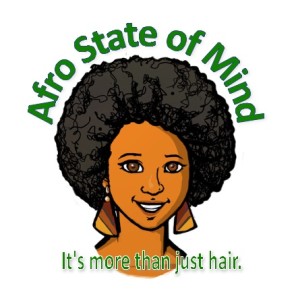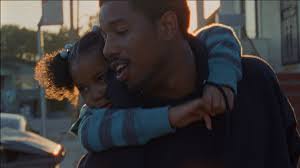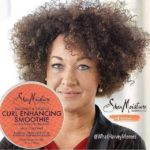“It’s easier to build strong children than to repair broken men.”
Frederick Douglass
When my husband and I went to see Fruitvale Station I made sure to bring tissue. Not because I cry easily but because every one of our friends who’d seen it advised that there was not a dry eye in the theaters where they saw the highly acclaimed film.
There’s no doubt that the movie pulls you hook, line and sinker within the first five minutes. Starting out with some of the grainy cell phone footage of Oscar Grant’s last moments on earth, the audience spends the next 90 minutes getting to know Oscar and sharing in his final 24 hours.
Director Ryan Coogler does a magnificent job of presenting Oscar’s multiple dimensions and humanizes him in a way that is rare for Black males on the big screen. Sure we all know someone like Oscar—but it isn’t often that stories like his are told in a way that speak to his honor and complexity as a Black male.
We root for Oscar as he spends his last day fighting the challenges of unemployment and the pull of easy, illicit money. We pray for him as he battles the typical set of challenges that stymies so many Black youth. We want him to win because on that screen he represents something so much bigger than himself. He looks, talks, walks and sounds like so many youth we pass each day…our desire is to see Oscar win.
And even though we know how the story ends—we find ourselves hoping, yearning for a different outcome. A different ending—one where Oscar’s mother doesn’t have to lead rallies in the name of her slain son.
After the film I sat in a stunned emotional silence with a face covered in tears. I could hardly breathe.
I realized that while Oscar’s life has been immortalized on the screen there are countless others whose names I will never know. I found myself thinking about all of the names of Black kids who share in Oscar’s day-to-day struggle and who ultimately loose their lives before it is time. Cities like Chicago, New York, Atlanta—all across the country Black neighborhoods bear the scars of youth whose potential is snuffed out far too soon.
What if He’d Made It Home?
Then it hit me.
What if Oscar hadn’t been shot? What if he’d made it home that night and woke up the next day ready to start a new year? What if he awoke to the same set of struggles and institutional racism that kept him in a perpetual state of frustration for the 24 hours before his death?
As a Black male with a criminal past, where was he going to find work? As the father of a young girl whom he loved dearly, how was he going to support her and her mother?
You see we know Oscar’s name today largely because his life ended so tragically at the hands of a White officer. But if he’d been murdered on that train by the other young man who confronted him, would we know his name? Would we gather in theaters to collectively mourn his loss?
If Oscar had escaped death that night he likely would be one of millions of Black youth trapped in a society that has no place for him. The sad odds are that he may have returned to prison at some point simply because there is usually no ladder out of the suffering for most of the young people Oscar represents. There often are no bootstraps for those kids to pull themselves up—unless they have help.
That’s where the rest of us come in.
Those of us who “made it.”
Don Lemon — or Something More?
Sure, we could dabble in the politics of respectability like CNN Anchor Don Lemon, and declare that if only Black kids acted more like White kids, then everything would be ok. But as stated on twitter by @misskstrong, that’s simply a dose of
“Neo Booker T Washington rhetoric but without any logic or historical context.
As noted in Goldie Taylor’s powerful piece on thegrio.com, perhaps Don Lemon
Was stoking controversy for the sake of improving his poorly rated weekend show and raising his profile. But if his half-hearted explanation on ABC’s The View is any indication, it is a little of both. Despite his self-professed humble upbringing, Lemon betrayed a barely nascent understanding of the societal and political pathologies that left generations of devastation in their wake.
Those of us who, unlike Lemon, choose to engage in a more serious and qualitative discourse about the issues facing our kids, need to be about the business of creating an alternative for Oscar and the countless other victims whose bodies litter the streets in Black communities.
Because unless we create alternatives for the countless Black youth who die too soon and whose names we’ll never know, no one else will.
Arguably, to some extent Lemon and some of the voices on the Right are correct. It is a failing and the failing is ours. For when we fail those living in the margins, we fail ourselves. When we find meaningful ways to advance the quality of life for the least of us, we raise the quality of life for all of us. To do so means to eschew cheap talking points and dig for the root of the issue.
In the days of stop and frisk, rampant Black unemployment, nationwide reduction in benefits, increased violence and the elimination of services that many in our community actually need in order to survive, the old adage “each one teach one” won’t work anymore.
We need a new mathematical formula: each one of us must teach, reach and move as many as you possibly can.
It is imperative that those of us who have the ability and the resources—those of us who “made it“—increase the level of attention we are giving to those in our community who are suffering the most. And I’m not talking about just taking some mentees to lunch once a month, either. I’m talking about creating our own programs and institutions, funded by our selves, designed to meet our own specific needs.
I’m talking about using the education and degrees so many of us pride ourselves on—and doing more than just getting a job where we spend 50 hours a week working outside of our community and 2 hours a week volunteering in it.
I’m talking about Black doctors creating and funding hospitals and medical research dedicated to addressing the physical and mental ailments that specifically reduce our life expectancy. I’m talking about Black lawyers creating and funding legal defense funds that target our specific needs and that develop lobbying groups to advocate for changes in the legal system.
I’m talking about Black business owners and entrepreneurs creating think tanks and business incubation centers focused on creating jobs for people with the skill sets and challenges that abound in Black neighborhoods.
I’m talking about Black educators creating programs to meet the specific needs of Black youth during after school and on weekends to ensure our kids are safe and developing as healthily as possible. I’m talking about Black community organizers creating connections between urban farmers and Black parents who live in food desserts so we can address the rampant nutritional deficits so many of our people struggle through.
You know…strategic self-investment by those of us who can for those of us who need a hand. After all this is nothing more and nothing less than any other healthy community does for itself.
Those of us who have “achieved” some semblance of security and stability are responsible for creating institutions that will help others do the same. I know some of us are doing a lot.
But many of us could do so much more.
We can try to deny this responsibility—but if we don’t create an alternative for the youth Oscar represents—then who will? Because at the end of the day, history shows us that no one else is coming to help. No one else is going to do the heavy lifting.
We didn’t create these problems, but we are the only ones who can – or who care – to fix them.
Fruitvale Station was a powerful movie, not just because of the brilliant acting and moving story. But because when I look at Oscar on that screen I see the faces of countless babies who need more. And I know that if I’m not part of creating the collective solution then in a few years my kids will likely sit in a theater where another Black life that was taken too soon is immortalized on the screen. They will mourn the loss of someone to whom they can relate all too well. And the beat will go on…
Is this difficult? Of course. But as noted in the beginning:
“It is easier to build strong children than to repair broken men.” – Frederick Douglass
*****
If you’re looking for more thoughts from an Afro State of Mind, check out my book “Afro State of Mind: Memories of a Nappy Headed Black Girl now available on Amazon.com in paper back or e-book.






Once again the truth, what a miraculous piece written here… Just awesome. I saw the movie yesterday and had the same thoughts and reaction. This piece made me cry again. So powerful..
Thank you. This was a hard one to write and the film still has me in a state of shock…
This is a lovely thought provoking article! You touch on key issues we are facing in our communities with the current lack there of of black initiation and participation to build our communities. I agree with you, the only way we will begin to see change is by us creating it for ourselves.
This article was eloquently executed and outlined in great detail strategies necessary to prevent another Oscar debacle occurring . Honestly it is our responsibility as a community to stand up/ stand with/ stand for all the Oscars that we see everyday because if we do not we already know the course their lives and our life by proxy are headed. They are our brothers, neighbors, and sons and they cannot be ignored any longer because ultimately we are family and inasmuch as some of us may try to run away from that fact it is still there in the backs of our mind. Thank you for this insightful article.